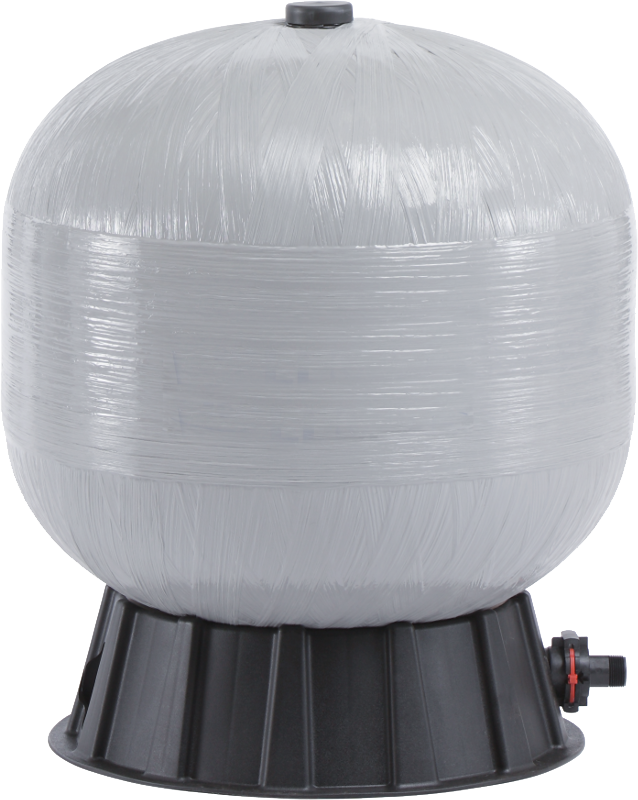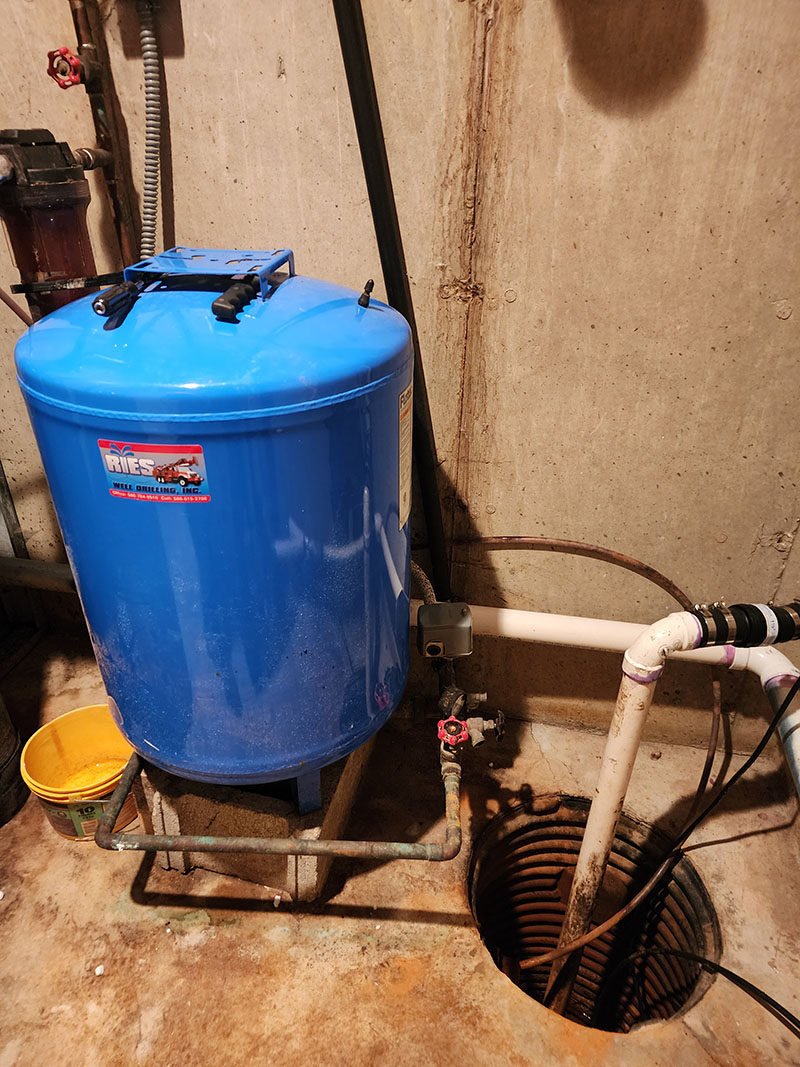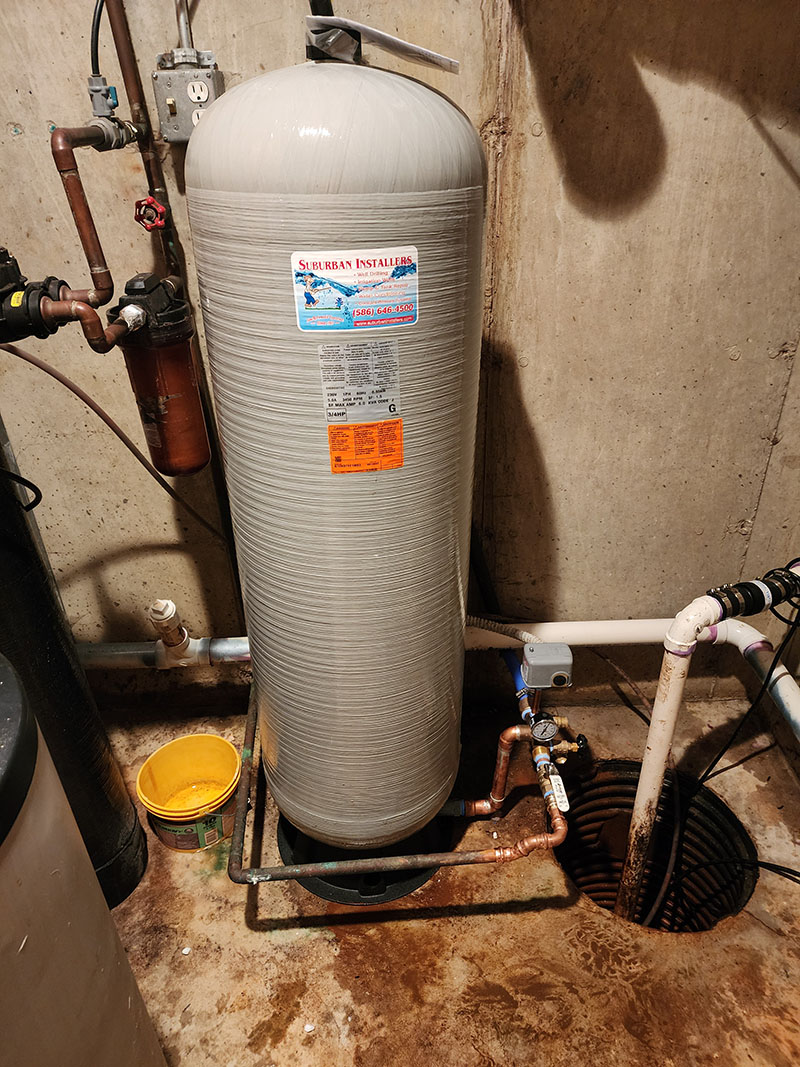
Tank Replacement
Water Well Pressure Tanks Store Pressurized Water For Your Home
Your water well system consists of several different components one of which is the water well pressure tank. Pressure tanks store pressurized water that can then be distributed throughout your home through your plumbing system.
Pressure tanks operate by keeping stored water in a constant state of pressure. As water is drawn from the tank, the pressure level drops. At a pre-set threshold, the pump activates and replenishes the water, which then raises the pressure in the tank.
How Your Well’s Pressure Tank Works
The pressure tank’s primary function is to act as a storage reservoir keeping consistent water pressure throughout your home’s plumbing system. Most home water systems are setup to turn the pump on at 20, 30 or 40 psi and shut off at 40, 50 or 60 psi. The tank consists of a water reservoir with a pressurized bladder sitting above the diaphragm and storage tank.
When the pump cut-in pressure level is reached, the water pump will turn on and run until the tank reaches the predetermined shut-off pressure. If the tank is properly working, the pressure allows water to be drawn from the tank without the need for the pump to be engaged at all times. By reducing the on-off cycling of your pump, a pressure tank will prolong the life of your other water well system components.
Installing the proper sized tank for your needs is crucial. You’ll need to determine the number of gallons per hour (GPH) pushed through your plumbing system as well as the number of fixtures (including outside sources) in your home. When in doubt, installing a larger pressure tank is a smart decision. Larger tanks hold more water and significantly reduce pump cycling.
Troubleshooting Water Well Pressure Tanks
If your pump seems to be running more frequently with only small amounts of water being used, you should check your system. Bladder tanks have two separate sections that are separated by a rubber bladder. There are several scenarios where it may become necessary to service your pressure tank. These includes:
PRESSURE TANK NEEDS CHARGING
Much like a car or bicycle tire, a bladder-style pressure tank can develop a slow leak and gradually lose its air supply. One sign this may be occurring is more frequent pump cycling. When you have a slow leak, the pump needs to work harder to maintain the pressure threshold. This can cause the pump to quickly wear out. To determine if your tank needs charging, disconnect the power from the pump and open a faucet to relieve pressure from the pipes and the tank. A pressure gauge attached to the valve should read a little less than the cut-in pressure. If it reads significantly less, you may need to recharge the tank, but that may also indicate a leak or a defective valve, which will need to be repaired first.
A WATERLOGGED PRESSURE TANK
When a water well pressure tank becomes waterlogged it overfills with water, and because the pump cannot maintain pressure, it cycles more frequently. This condition is apparent at the faucet where water pressure drops quickly, sometimes to nothing. Tanks become waterlogged when the bladder becomes compromised. Excessive chlorine, as well as certain minerals, can cause this condition. You may also notice bubbles in the water at the faucet.
Over-cycling of the pump and air bubbles present at the faucet are a clear indicator that you may have issues with your pressure tank. The best solution is to contact a well water specialist at Suburban Installers. They will troubleshoot your system and can detect and repair problems before they become major issues requiring an expensive pump or pressure tank replacement.


Suburban Installers do plumbing the right way. Our copper work is straight and correctly soldered. Our meters and electronic switches are put in readable and accessible spots.
Still have questions about water conditioning?
Call us Today: (586) 646-4500

We’re proud of our long-standing history of four generations and well-earned reputation since 1963
Our policy is crystal clear. We will never compromise on the water quality or the health of your family. We have the finest reputations in the industry, built on quality and dependability.